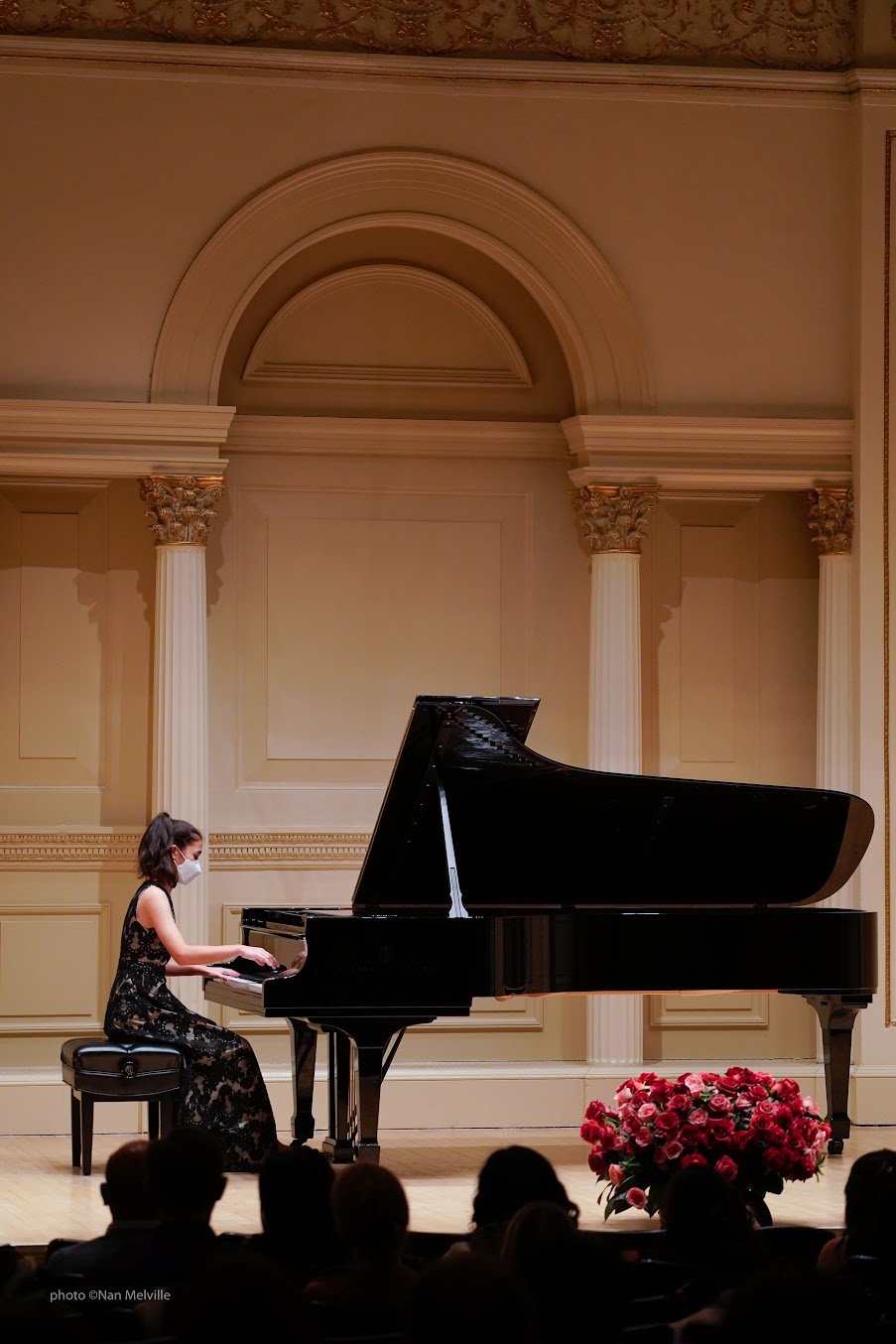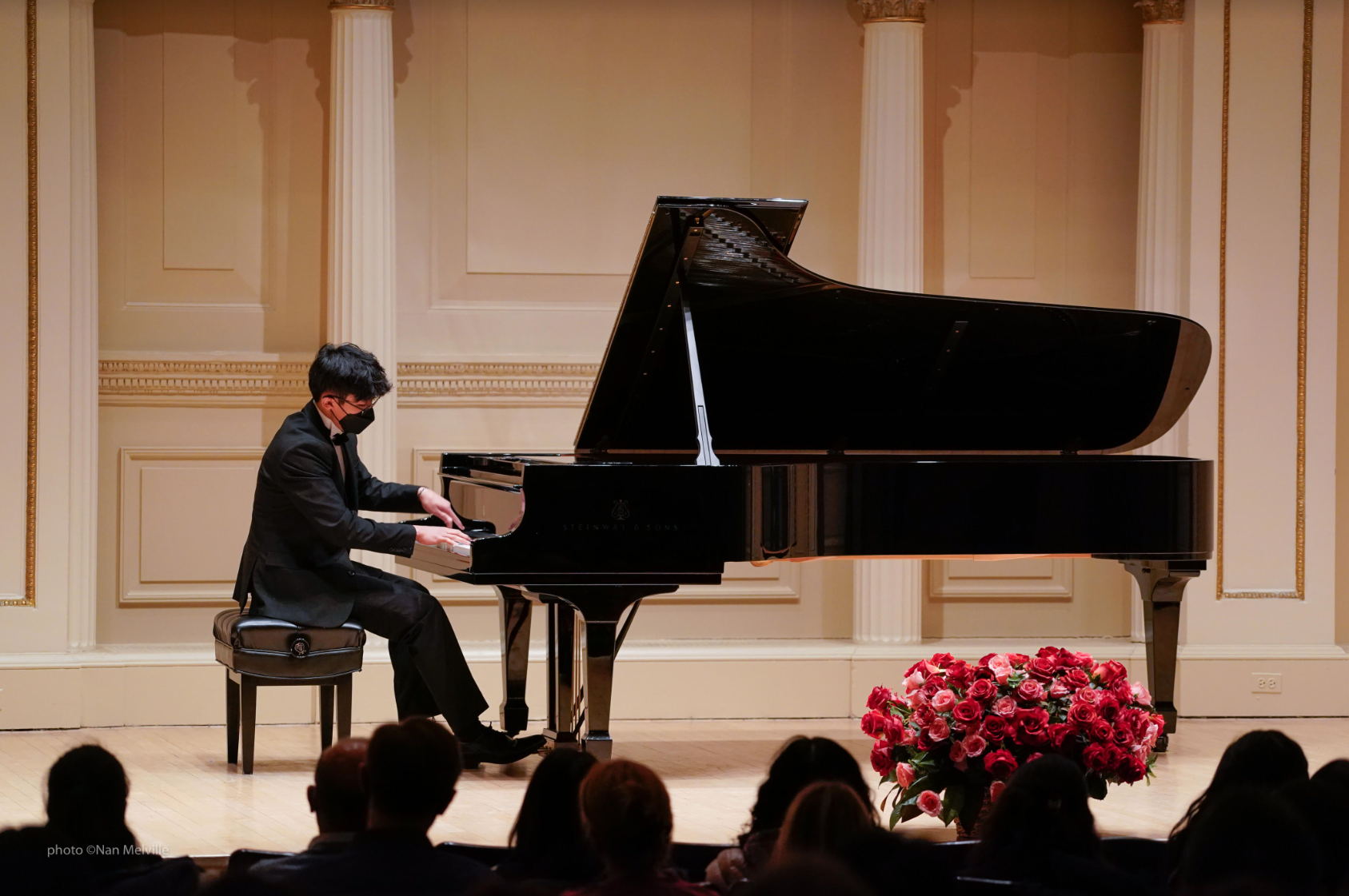How Do You Get to Carnegie Hall?
Last December, Eddy Kang (‘24) and Julia Janknecht (‘23) performed at the world-famous concert hall. Both Kang and Janknecht were declared winners in the annual American Protege International Piano and Strings Competition. Although they filmed and submitted recordings two years ago, the Covid-19 pandemic postponed their performances until December of 2021. Upon receiving the news that they would finally receive the opportunity to travel to New York and take on the big stage, both musicians felt immense excitement. For Julia in particular, the news was especially sweet: “It was actually pretty amazing [when I found out] because I had tried out in eighth grade and I didn’t win.”

Julia’s path to Carnegie has been characterized by extensive commitment: since she began the piano in second grade, Julia spends an hour in focused practice each day (barring AP exam season) during the school year and two hours during summer months. Such dedication has allowed Julia to master challenging concert-level pieces, such as Beethoven’s 20th Sonata Opus 109 -- the piece she chose to perform at Carnegie Hall last winter. To master such a piece is no small feat -- Julia spent two to three months simply learning the notes. Once this first phase is complete, she spent the following three to four months strengthening her relationship with the piece in order to truly grasp its intricacies. “You need to know all the right notes and be really good technically, but I do think the musicality can be more important,” said Julia.
Beyond practice, the recording process also demanded substantial time and energy. Julia and her teacher enlisted a professional recorder to create her audition tape for Carnegie. She once spent four straight hours attempting and re-attempting her piece but was unable to produce a satisfactory take for the day. “In recordings, if you don’t get it right on the first or second try, you most likely will make more mistakes in all the following tries.” Julia, however, stuck with the process and ultimately produced a take that met her standards and secured her a spot in the program at Carnegie’s American Protégé competition.
Similar to Julia, Eddy Kang also invests months of practice and dedication into his art form. He has played the piano for eleven years. When he submitted his audition in eighth grade, Kang says that part of him “didn’t want to get in because [he] was super nervous …it’s a huge stage.” Even still, he naturally felt “very excited” about the prospect of performing at the renowed venue.

One of Eddy’s greatest challenges when it comes to music performances is nerves. Even after a year of learning and mastering his piece, Moszkowski’s Caprice Espagnol Op. 37, Eddy notes that learning the music is just one obstacle each musician must overcome: the real challenge comes on the day of the performance when his mind is ridden with nerves. To overcome pre-concert jitters, Eddy simply closes his eyes and tries to enter a meditative state. This enables him to focus more intently on his playing once he is actually sitting before the piano. “When you play a piece for that long, your body and hands know what to do, but it’s a matter of if you can control your nerves at the time. It’s purely mental. Everyone can play it physically, it’s just a mind game.”
On the actual day of his Carnegie performance, both Eddy and Julia had access to practice studios a few blocks away from the Hall. Neither, however, had the chance to warmup on the concert piano— Eddy describes that he went straight backstage and directly to the stage when his turn had arrived. Nonetheless, the transition from practice pianos to the $250,000 concert piano was seamless. “Each piano has its own traits, but I’d say the [Carnegie] piano was the best piano I’ve ever played on." Both Julia and Eddy took on the stage with confidence and grace. So, how do you get to Carnegie Hall? Two of our very own Casady students know the answer.
